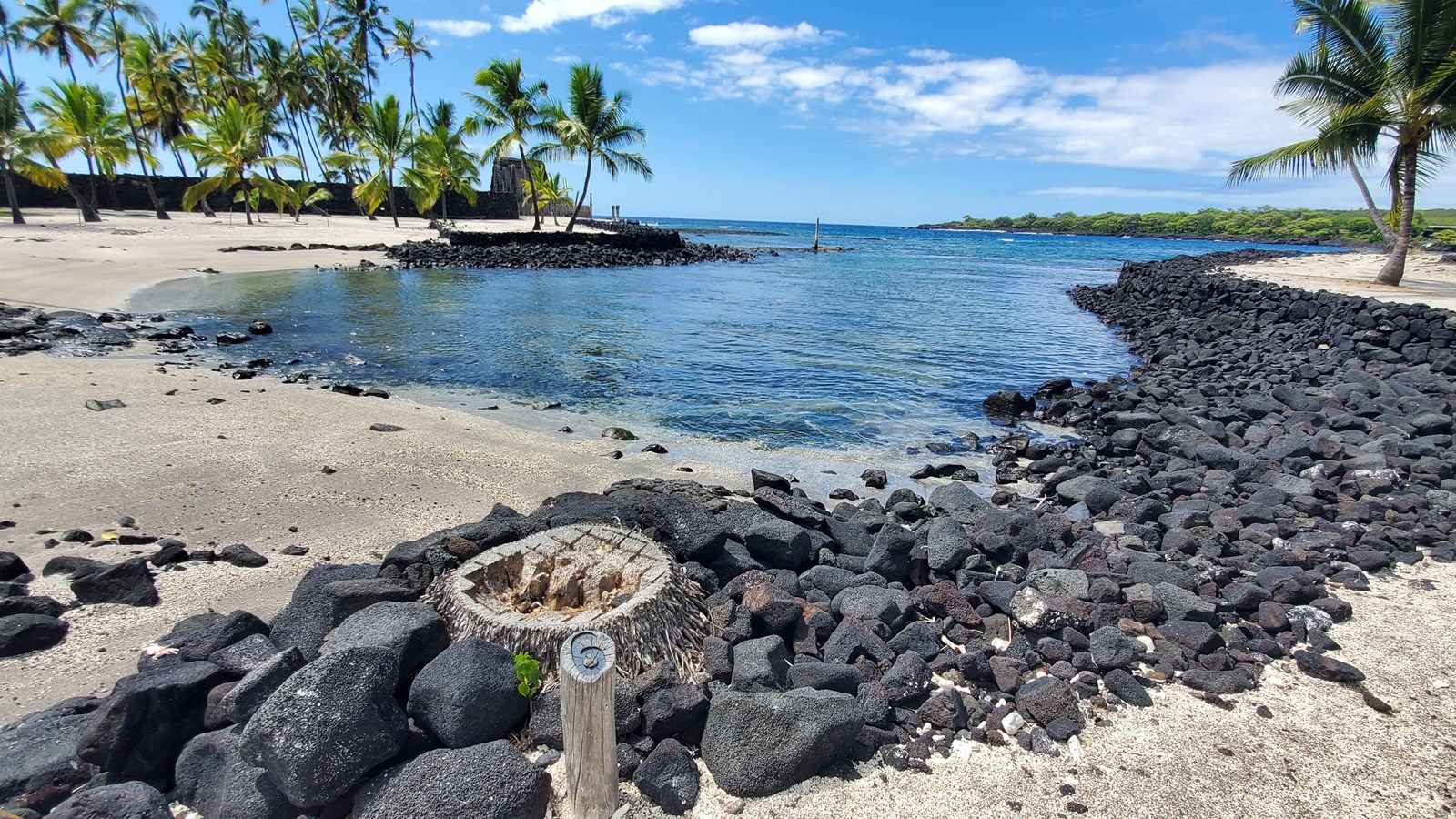Last updated: February 14, 2021
Place
#6 - Keoneʻele Cove

NPS
Audio Description, Historical/Interpretive Information/Exhibits, Scenic View/Photo Spot
The ancient name of this sandy cove – Keoneʻeleʻele – has been recorded in tradition and refers to the black sand that may have once covered the area. While the landscape may have changed, its tradition is remembered.
Keoneʻeleʻele was used as a canoe landing for aliʻi visiting these grounds. Here the aliʻi would engage in the practices of hoʻomana (religion) and kālaiʻāina (politics) and enjoyed pastimes at their leisure. However, before even setting foot on the sands of Keoneʻeleʻele, a visiting aliʻi must be challenged upon arrival in a rite called Kāli’i. In this rite, those onshore stage an attack with spears upon the approaching aliʻi. Demonstrating both their skill and strength, the visiting ali’i must successfully deflect and defend against this attack. Only upon completing this Kāliʻi rite may passage into the Royal Grounds be granted.
During the day, it is not uncommon to see honu (green sea turtles) basking on this sandy incline or upon the lava flats extending along our shoreline. These sea turtles are protected under the Endangered Species Act; keep at least 20 feet distance. In addition, we kindly ask all visitors to refrain from sunbathing, picnicking, or entering the water anywhere in the Royal Grounds or the Puʻuhonua as these places are still considered wahi kapu, or sacred, among our community.
